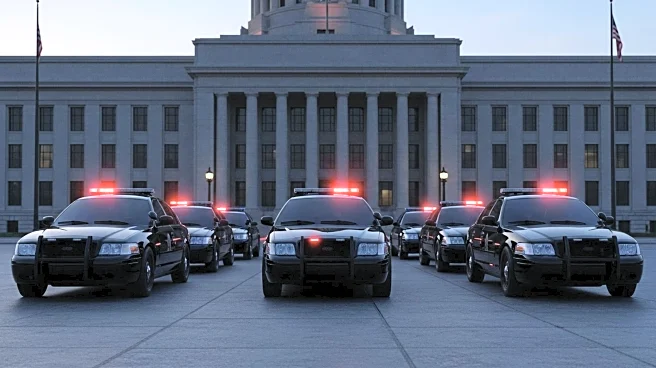What is the story about?
What's Happening?
President Trump's 30-day emergency declaration, which federalized Washington D.C.'s police force, is set to expire without an extension from Congress. The surge, which included the deployment of the National Guard, aimed to reduce crime in the nation's capital. Official figures indicate a decrease in crime, with over 2,100 arrests and a significant drop in violent crime rates. However, the operation has sparked fear and controversy among residents, with some viewing it as a 'forced military occupation.' The surge's impact on crime reduction is debated, as crime rates were already declining prior to the intervention.
Why It's Important?
The law enforcement surge in Washington D.C. highlights the complex dynamics between federal and local authorities, as well as the political implications of such interventions. While the operation may have contributed to a temporary reduction in crime, it has also raised concerns about civil liberties and the militarization of policing. The surge's expiration could lead to changes in law enforcement strategies and community relations, as local authorities regain control. The situation underscores the challenges of balancing public safety with community trust and autonomy.
What's Next?
As the emergency declaration expires, the Metropolitan Police Department will no longer be under federal control, potentially altering law enforcement practices in the city. The National Guard's presence may continue, but their role and impact remain uncertain. The situation in Washington D.C. could influence future federal interventions in other cities, as President Trump has expressed interest in similar operations in Chicago and Baltimore. The outcome of this surge may shape public perception and policy decisions regarding federal involvement in local law enforcement.
Beyond the Headlines
The surge has strained community relationships, particularly among immigrant populations who fear increased immigration enforcement. The presence of federal law enforcement has heightened tensions and may require efforts to rebuild trust between residents and authorities. The situation also raises questions about the long-term effectiveness of aggressive policing strategies in addressing underlying social issues that contribute to crime.















